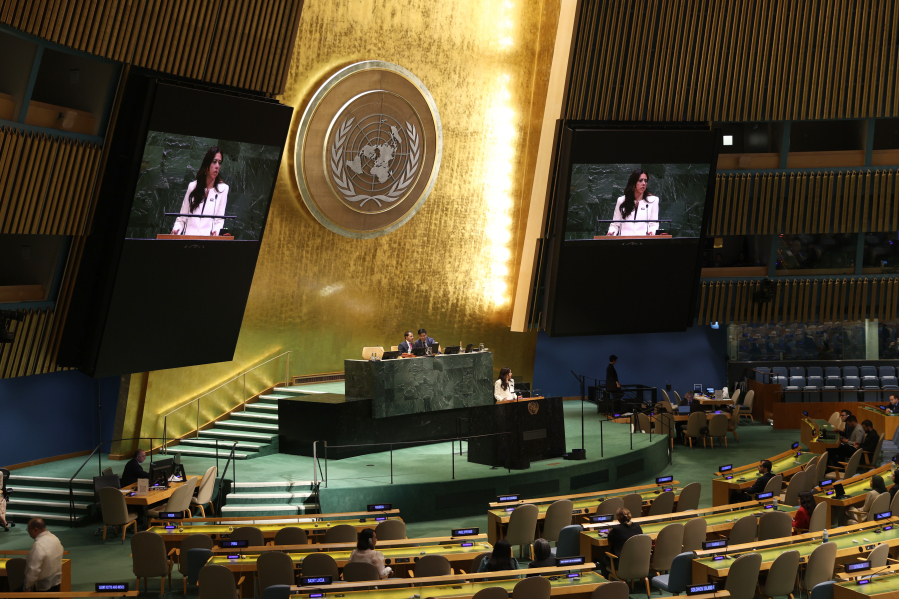The annual gathering of world leaders at the United Nations has seen a stark warning from Egypt regarding the escalating crisis in the Middle East. Egyptian Foreign Minister Badr Abdelatty stated that the region is “at a point of implosion,” highlighting the urgent need for international intervention to address ongoing violence, particularly in Gaza.
On Saturday, leaders from Saudi Arabia, Egypt, the United Arab Emirates, and Oman united in their condemnation of Israel’s military actions in Gaza, which have resulted in significant civilian casualties among Palestinians. They expressed disappointment over the failure of the United Nations and the global community to facilitate a ceasefire and halt the bloodshed.
Escalating Violence and Calls for Accountability
The remarks from the Middle Eastern leaders followed a speech by Israeli Prime Minister Benjamin Netanyahu to the General Assembly, where he defended Israel’s ongoing military operations. This comes in the aftermath of a surprise attack by Hamas on October 7, 2023, which resulted in the deaths of approximately 1,200 people and the abduction of 250 hostages.
In response to the situation in Gaza, Abdelatty criticized the international community for “standing idly by as a spectator” while violations of international law occur. He described Israel’s actions as “a wanton, unjust war waged against defenseless civilians for a sin they did not commit,” asserting that this conflict has repercussions that affect multiple countries in the region.
Abdelatty also recalled the historic peace efforts initiated by former Egyptian President Anwar Sadat, emphasizing that lasting peace in the region requires the establishment of a sovereign Palestinian state. He stated, “Israel cannot be secure unless other countries in the region are secure, and the region cannot see stability without an independent state of Palestine.”
Regional Impacts and the Call for a Two-State Solution
The conversation among Middle Eastern leaders also touched on broader regional issues, including the civil war in Sudan, the political divisions in Libya, and the ongoing crisis in Yemen, where the internationally recognized government is engaged in conflict with Houthi rebels. They pointed to repeated Israeli violations of Lebanese and Syrian territories as further destabilizing factors.
Saudi Arabian Foreign Minister Prince Faisal bin Farhan voiced concerns about the humanitarian crisis unfolding in Gaza, calling it “unprecedented.” He urged the international community to take decisive action to end the conflict and pursue a two-state solution to the Israeli-Palestinian conflict, which he believes is essential for regional security.
Farhan stated, “The failure of the international community to take firm actions to end the Israeli aggression and violation will only cause further instability and insecurity regionally and globally.” He added that Saudi Arabia, along with Norway and the European Union, has initiated an international coalition aimed at implementing the two-state solution.
The ongoing crisis in the Middle East continues to draw attention from global leaders, as the ramifications of the violence extend beyond the immediate conflict. The urgency for a coordinated international response has never been more critical, with the potential for further escalation looming if decisive actions are not taken.
